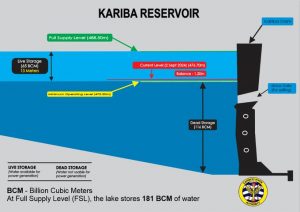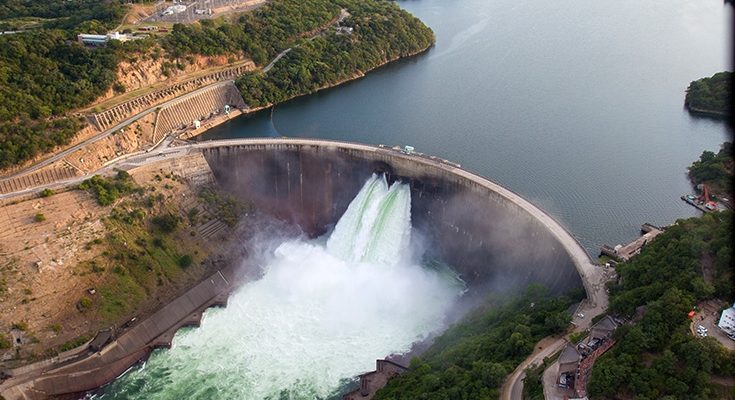The Kariba Reservoir, a vital lifeline for hydroelectric power generation in both Zimbabwe and Zambia , is facing an unprecedented crisis as water levels have drastically dropped.
In a graphic depiction of the current water levels at Kariba Dam, Zimbabwe Power Company said that the current water levels on the reservoir have dropped to an unsustainable levels crippling the power generation flow.

As of September 2, 2024, the water level in Lake Kariba stands at a perilous 476.70 meters, a mere 1.20 meters above the minimum operating level. This drastic drop has reduced the live storage—the portion of the lake’s water that can be used for power generation—to just 1.26 meters. The lake, which at full capacity holds 181 billion cubic meters (BCM) of water, is now teetering on the edge of “dead storage,” where water is no longer usable for electricity generation.
Last week Zambia’s power utility company , ZESCO announced that it will shut down the Kariba North Bank Power Station on September 14, 2024, as the water levels continue to drop.
Concurrently, in Zimbabwe, power generation has also been scaled back significantly, with both countries now experiencing severe power cuts.
Over the past months, Zambians have been enduring blackouts lasting up to 12 hours a day, while Zimbabweans face up to 12-hour outages.
The current situation, exacerbated by the El Niño phenomenon, has left the lake with just 8% of usable water storage, severely compromising electricity production.
The situation is forcing both nations, heavily reliant on hydropower, to urgently seek alternative energy sources. Zambia is exploring emergency power imports and accelerating investments in coal and solar power plants. Meanwhile, Zimbabwe is also looking into diversifying its energy portfolio to mitigate the energy shortfall.
Experts warn that the worst may be yet to come. With the rainy season still three months away, the region could face even more severe power disruptions. This ongoing drought underscores the critical need for southern African nations to adapt to the impacts of climate change. Expanding and diversifying energy sources is now not just a priority but a necessity to ensure energy security and stability in the face of an increasingly unpredictable climate.






Comments